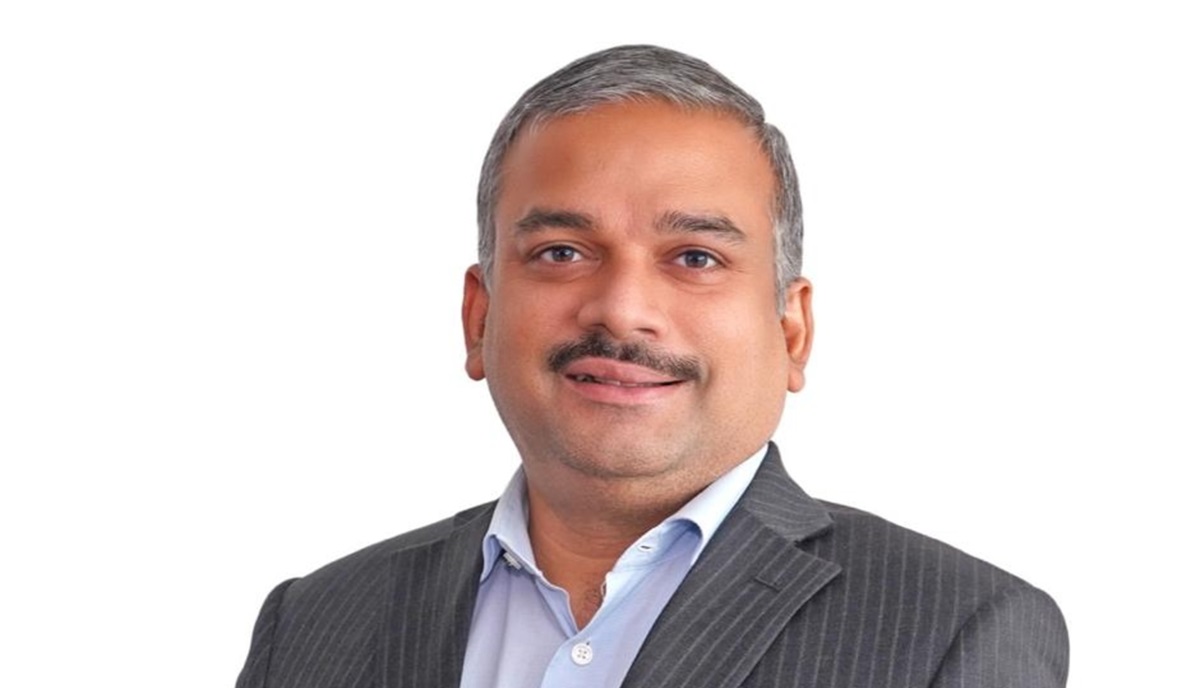Ram Narayanan, Country Manager at Check Point Software Technologies, Middle East, highlights that at GITEX, the company will showcase its latest cybersecurity innovations, including Infinity XDR/XPR and AI-driven tools. Check Point will also focus on enhancing digital security and forging stronger partnerships; it supports the Middle East’s digital transformation journey.
What are Check Point Software’s key goals for participating in GITEX 2024?
At GITEX 2024, Check Point Software aims to showcase its innovative cyber security solutions driving digital transformation in the region. The primary focus is on strengthening relationships with existing customers and partners while exploring new opportunities to enhance digital security in the region. This year, Check Point is excited to highlight the launch of its Infinity XDR/XPR solution in the UAE and to present an expanded security ecosystem through engaging live demonstrations and insightful discussions.
Can you share some of the major solutions or innovations Check Point will showcase at the event?
Check Point Software’s presence at GITEX will demonstrate how its solutions are redefining security operations through automation and advanced technology. A key highlight will be the demonstration of the Check Point Infinity AI Copilot, which leverages Gen AI to streamline security operations and enhance threat detection. We are also introducing the Check Point Infinity XDR/XPR in the UAE, providing customers with 360-degree visibility and seamless integration with third-party solutions. Additionally, in response to challenges such as stolen credentials, fake websites and impersonation attacks, we will showcase our comprehensive SOC offering. Strengthened by Check Point’s acquisition of Cyberint, this solution addresses both external and internal threats, ensuring robust risk mitigation.
What is the importance of GITEX for Check Point in terms of networking, partnerships, or customer engagement?
GITEX provides an important platform for Check Point Software to engage with key stakeholders, including customers, partners and industry leaders. It presents opportunities to strengthen existing relationships, forge new partnerships and exchange insights on emerging cyber security challenges. For the first time, Check Point is expanding its presence alongside several partners, emphasizing a collaborative approach to addressing the region’s growing cyber threats and reinforcing its commitment to delivering comprehensive cyber security solutions.
How do the solutions you are presenting at GITEX address current cyber security threats, particularly in the Middle East
Solutions presented by Check Point Software at GITEX 2024 adopt a prevention-first approach to combat pressing cyber security threats. The Check Point Infinity XDR/XPR platform delivers real-time threat intelligence and extensive visibility, empowering organizations to proactively prevent cyberattacks. This solution integrates seamlessly with third-party tools, enhancing defences against sophisticated threats such as ransomware and phishing. Additionally, the Infinity AI Co-pilot and SOC solutions streamline security operations, enabling businesses to respond quickly and effectively to incidents.
Are there any new products, partnerships, or technologies that Check Point is launching or announcing at GITEX?
Yes, Check Point Software will host launch sessions for the Infinity XDR/XPR platform at its booth, marking a significant enhancement in its cyber security offerings for the UAE market. The company is also expanding partnerships with regional players to strengthen its channel ecosystem, ensuring that its solutions meet the evolving cyber security needs of businesses in the Middle East as they navigate their digital transformation journeys.
How is Check Point Software adapting its solutions to meet the growing demand for cloud security, especially with the rise of hybrid work models?
Check Point Software is dedicated to securing hybrid environments as cloud adoption and hybrid work models continue to grow. Its hybrid data center security solution, which includes Check Point CloudGuard and Check Point Quantum Security Gateways, integrates threat prevention and policy management across on-premises and cloud infrastructures. This unified approach ensures consistent protection, enabling faster response times and reducing operational costs. With advanced AI and machine learning capabilities powered by Infinity ThreatCloud AI, Check Point offers real-time threat detection and robust cloud security without compromising performance or agility.
What are some of the key trends in cyber security that you see in the Middle East region, and how is Check Point positioned to address them?
The Middle East’s tech landscape is rapidly evolving due to digital initiatives and increased adoption of cloud technologies and IoT. However, these advancements have led to a notable rise in cyber threats, with Check Point Research reporting an 18 percent year-over-year increase in cyberattacks in Q2. In response, organizations are increasingly embracing AI-powered security solutions. Check Point leads this charge with its Infinity Platform, leveraging AI to enhance cyber security efficiency and accuracy. This comprehensive, cloud-delivered solution features Check Point Harmony for workspace security, Check Point CloudGuard for cloud protection, Check Point Quantum for network security and Infinity Platform Services for collaborative operations, empowering businesses to navigate the evolving cyber security landscape confidently.
How does Check Point plan to support digital transformation initiatives for enterprises in the MENA region through its cyber security solutions?
Check Point Software is dedicated to facilitating digital transformation initiatives in the MENA region by delivering comprehensive, AI-powered security solutions that protect enterprises across their entire digital landscape. The Infinity architecture is designed for scalability, allowing seamless integration with both on-premises and cloud environments. The UAE Infinity Portal, launched at the end of last year, acts as a unified security management platform specifically tailored for businesses in the UAE. It equips organizations of all sizes with advanced tools for threat prevention and security management, ensuring compliance with local data privacy regulations. Additionally, with the introduction of the Infinity XDR/XPR solution in the UAE, businesses can accelerate their digital transformation while maintaining a strong security posture, protecting critical infrastructure and confidently adopting cloud technologies.
How are you engaging with your customers and partners during GITEX? Are there any special presentations, demos, or interactive sessions planned?
At GITEX 2024, Check Point Software will actively engage customers and partners through live demos, presentations and interactive sessions at its booth. Experts will provide technical briefings and showcase the latest innovations and strategies to combat evolving cyber threats. These demos and discussions will offer attendees valuable insights into how Check Point solutions can enhance their security posture and address the most pressing challenges in today’s digital landscape.
Could you share any success stories from the Middle East where your cyber security solutions made a significant impact?
Emaar, a leading real estate development company, faced significant challenges in managing its rapidly growing network traffic and the complexity of its hybrid infrastructure. To address this, they implemented Check Point’s Quantum Security Gateways and Maestro orchestration, which streamlined threat prevention across both cloud and on-premises environments. This upgrade not only enhanced scalability and threat management but also positioned Emaar for a zero-trust framework, ensuring robust defences against evolving cyber threats.
On the other hand, Al-Futtaim Group, a diversified conglomerate with extensive retail operations, needed to scale its security defences to keep pace with its growth. They opted for Check Point’s Quantum Security Gateways to simplify their security infrastructure. This solution enabled them to consolidate their security segments and automate configurations, significantly reducing administrative overhead and positioning them to effectively manage future expansions in their cloud and on-premises environments.
What role do you see emerging technologies such as AI and machine learning playing in the future of cyber security, and how is Check Point integrating these into your offerings?
Emerging technologies like AI and machine learning are becoming essential in cyber security due to their ability to improve threat detection, automate responses and predict new attack vectors. Check Point Software has fully integrated these technologies into its Infinity architecture, including the Check Point Infinity AI Co-pilot, which automates security tasks and accelerates incident response. The Check Point Infinity ThreatCloud AI employs over 50 AI engines and vast threat data to combat phishing, ransomware and other threats. With these capabilities, Check Point enables proactive threat prevention, minimizes false positives, and streamlines security operations, positioning itself as an innovator in the cyber security landscape.
What does the future of cyber security look like from Check Point Software’s perspective, particularly in the context of evolving threats like ransomware and nation-state attacks?
We have seen cyber threats grow significantly and we expect this trend to continue. Cyber warfare has solidified its place, and we’ve witnessed nation-state actors becoming increasingly active during various global conflicts. Both enterprises and governments are grappling with the surge in cyberattacks and their increasing sophistication, particularly phishing and ransomware, which are often difficult to detect and prevent. This is where Check Point Software remains at the forefront, continuously evolving its solutions and models to stay ahead of these threats. The future lies in shifting from chasing threats to preventing them altogether. To achieve this, we need robust threat intelligence and AI-driven engines that can model data, predict potential threats and automate detection, ultimately leading to better prevention.











